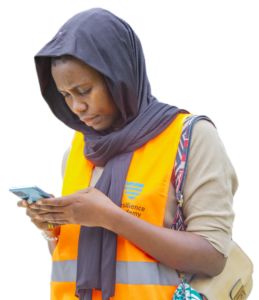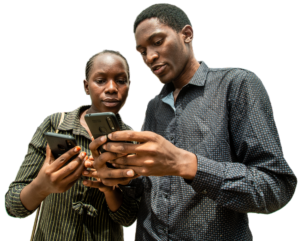GeoICT4e was grounded on the long-term and well-established cooperation between University of Turku (UTU) and the four Tanzanian Higher Education Institutions (HEIs) (UDSM, ARU, SUA, SUZA). It focused on expanding the teaching and learning impacts from the previous institutional cooperation together with three added partners: TURKU UAS and Novia UAS from Finland, and MoCU from Tanzania.
Now after the project, we have grown to a large eight-university consortium that enables development and institutional delivery of innovative and scalable geospatial and ICT e-learning services for Tanzanian HEI students, and beyond. Since our consortium goals are targeting for substantially broader learning impacts than before, we work in close cooperation with the local innovation and entrepreneur ecosystem and government sector actors, and the World Bank – funded by Tanzania Resilience Academy. We have engaged local communities through citizen panels to our challenge campaigns and created public awareness for inclusive and informed decision-making in Tanzania.
About GeoICT4e

Background


Multicompetence Learning (MCL)

1
Competent teaching and research staff with up-to-date geospatial and ICT skills, capable of tackling socio-ecological challenges in Tanzania
2
Improved teaching contents and methods as well as effectively used GIS/ICT research facilities
3
Increased synergies and interdependence among partner universities, their stakeholders and societal uses of their skills and resources
4
Diverse collaboration by the HEIs with the public, private and civil society actors: catalyzing GIS/ICT business ecosystem development and providing skilled graduates for the private sector.
The essential elements of our MCL approach
Problem domain skills in space and time
Students are solving real, complex problems of the surrounding society and thus they need to understand the root causes and consequences of the problems and their spatial and temporal dimensions.
Geospatial data and technology skills
Students need to obtain skills in collecting and using digital geospatial data and open-source Geo-ICT technologies in a novel manner. Digital data is a key asset for creating solutions to complex problems.
Entrepreneurial and innovation skills
Students’ abilities and professional confidence evolve in multi-stakeholder teams so that they know how to approach real-word challenges in a contextually clever manner, working for problem-owners towards innovative and influential solutions.
Climate, sustainability and resilience skills
Global change is creating uncertainty and unpredictability to our socio-ecological systems. Students need to have skills to design climate-smart and resource-efficient solutions for social, environmental and economic sustainability and improved resilience.
About the HEI ICI Instrument
The Higher Education Institutions Institutional Cooperation Instrument (HEI ICI) supports cooperation projects between higher education institutions in Finland and the developing world. The projects support the HEIs as they develop their subject-specific, methodological, educational and administrative capacity. The programme is funded by the Ministry for Foreign Affairs of Finland and administered by the Finnish National Agency for Education.
